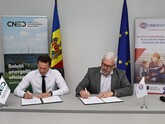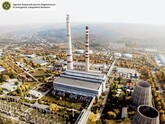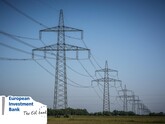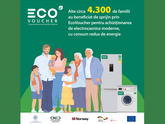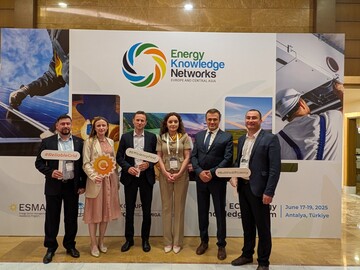
Moldova's energy sector reform was studied as a best practice example at the World Bank's Energy Knowledge Forum in Antalya
The Ministry of Energy reported this, noting that Moldova's experience in implementing energy transition, launching energy efficiency programs, and promoting renewable energy sources was cited as an example at the Energy Knowledge Forum, a platform launched for the first time by the World Bank in Antalya (Turkey), which brought together government officials, experts, and project implementers in energy efficiency and renewable energy from countries ranging from Central and Eastern Europe to Central Asia. Moldova was represented at the event by State Secretary of the Ministry of Energy Carolina Novac, as well as representatives of the National Center for Sustainable Energy, Moldelectrica, and the National Agency for Energy Regulation. Carolina Novac participated in a panel discussion with representatives of the Ministry of Energy and Natural Resources of Turkey, the Ministry of Energy Efficiency, Climate Change, Energy and Mining of Serbia, and the International Finance Corporation. She spoke about important reforms in Moldova's energy sector and the launch of energy efficiency programs in the residential and public sectors, which were initially a response to the energy crisis, but which will have a long-term impact on household energy bills, the country's energy security, and climate goals. For example, in its National Integrated Energy and Climate Plan, Moldova has set itself the target of reducing energy consumption by 0.8% annually in order to make 0.8% of the country's building stock and 3% of the building stock of central government buildings energy efficient each year. Last year, the National Center for Sustainable Energy launched the Moldova Residential Energy Efficiency Fund (FEERM), which plans to renovate more than 0.5 million square meters of housing. FEERM's investments in 2024-2026 are expected to result in total energy savings of at least 14.4 thousand tons of oil equivalent, reducing household energy consumption costs by at least 120 million lei during this period. Termoelectrica is implementing a program to install individual heat distribution units in 88% of homes connected to the centralized heating system and to switch 60% of homes in Chisinau to horizontal heat distribution. The public sector has also launched a number of programs to modernize the energy supply of public buildings, including dozens of hospitals, schools, and other educational institutions. The World Bank's Knowledge Bank initiative aims to ensure that the world's best knowledge drives development, scales effective solutions, and shapes global dialogues. The goal is to enable development professionals to learn from the practical experience of others, especially those who have faced similar challenges or are working toward similar development goals. The sessions will also highlight the importance of integrating knowledge into decision-making processes and scaling up successful initiatives. During her visit, Carolina Novac also visited a photovoltaic panel and battery manufacturing plant operated by CW Enerji, which has seven similar plants in other countries. Its annual production capacity for solar panels is 1.8 GW. This was a direct opportunity to learn more about Turkey's industrial policy, which supports the production of clean technologies, workforce development, and investment expansion. These investments have enabled Turkey to reduce its dependence on imports of photovoltaic systems and create new jobs. // 01.07.2025 — InfoMarket


